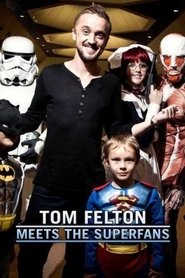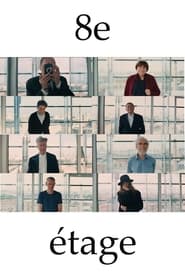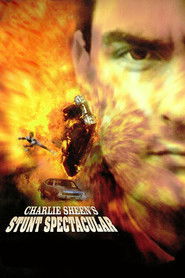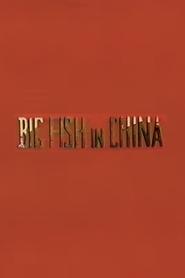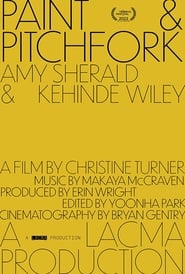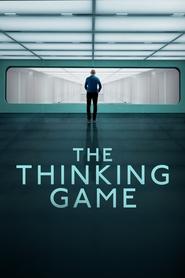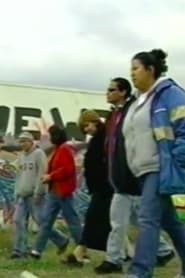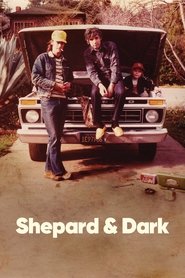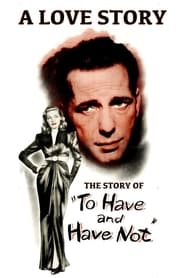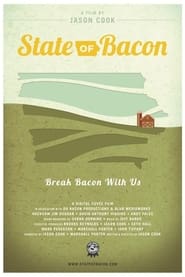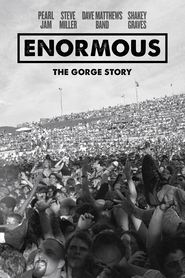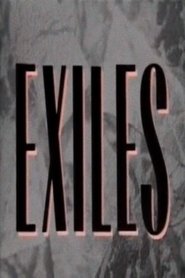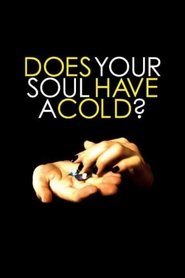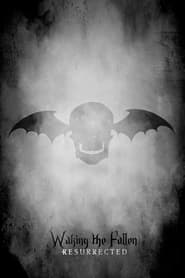Popular Documentary Movies - Page 346
-
Tom Felton Meets the Superfans
2015
star 7.4In his directorial debut, Tom Felton, who played the villainous Draco Malfoy in the hugely successful Harry Potter films, meets the world's most committed fans in a bid to understand what drives them. -
The 8th Floor
2014
The 8th Floor
2014
On the 8th floor of the Fondation Cartier in Paris, Raymond Depardon's film features a minute of silence with eight artists and scientists: David Lynch, Patti Smith, William Eggleston, Takeshi Kitano, Ron Mueck, Jean Michel Alberola, Agnès Varda and Misha Gromov. -
Charlie Sheen's Stunts Spectacular
1994
star 9.5The first behind the scenes look revealing the movie magic of the men and women of the stunt profession, Hollywood's unsung heroes. Charlie Sheen and Stuntman Hall of Famer BJ Davis host. -
Big Fish in China
1994
Big Fish in China
1994
Recording of the documentary 'Big Fish in China', a film looking at the work and life of Zhang Yimou, one of China's most famous film directors, and his leading lady and partner, Gong Li. -
Paint & Pitchfork
2022
Paint & Pitchfork
2022
This profile of celebrated artists Amy Sherald and Kehinde Wiley provides insight into why they make art and their unique perspectives on painting portraits. -
Europe's Lithium Paradox
2025
Lithium is the essential element for the batteries of our electric vehicles and for our energy storage. Europe has enough lithium in its bedrock to become self-sufficient. But today there is no operational mine yet, and the EU is depending on imports from China. A new responsible way of mining is necessary, one that recognizes the importance of local and cultural preservation. Can the European Union lead the way? -
The Thinking Game
2025
The Thinking Game
2025
star 7Chronicles the extraordinary life of visionary scientist Demis Hassabis and his relentless quest to solve the enigma of artificial general intelligence. -
Redwire Magazine and Native Hip Hop in Vancouver
1999
A piece about Redwire Magazine (now Redwire Media) made for CTV's youth zine First Story, highlighting Indigenous hip hop artists in Vancouver. -
Paul Simon: Under African Skies
2012
star 7.2Paul Simon returns to South Africa to explore the incredible journey of his historic Graceland album, including the political backlash he received for allegedly breaking the UN cultural boycott of South Africa designed to end the Apartheid regime. On the 25th anniversary of Paul Simon's GRACELAND, acclaimed documentary filmmaker Joe Berlinger offers a glimpse at the controversy surrounding the decision to record the album in South Africa despite a UN boycott of the nation, which was aimed at ending apartheid. In the run-up to an eagerly anticipated reunion concert, Simon, Quincy Jones, Peter Gabriel, David Byrne, Harry Belafonte, Paul McCartney and others reflect on the decision to record with local artists in South Africa, and the cultural impact of the album that delivered such hits as "I Know What I Know" and "You Can Call Me Al." -
Shepard & Dark
2012
Shepard & Dark
2012
star 5.5An indelible portrait of the complex relationship between playwright and actor Sam Shepard and his close friend Johnny Dark as they prepare forty years of their correspondence for publication, stirring up old memories both good and bad. -
Hopper/Welles
2020
Hopper/Welles
2020
star 5.9Captures a 1970 meeting between the movie industry titan Orson Welles and the then-rising star Dennis Hopper, who had just made Easy Rider. -
Synth Britannia
2009
Synth Britannia
2009
star 7.9Documentary following a generation of post-punk musicians who took the synthesiser from the experimental fringes to the centre of the pop stage. -
A Love Story: The Story of 'To Have and Have Not'
2003
star 8In the '40s Howard Hawks boasts that he can make a movie out of the worst thing Hemingway ever has written. When Hemingway asks, which novel he means, Hawks says To Have and Have Not. Jules Furthman writes a script, which follows the book closely. The location of the story is Cuba, but the US Government is against depicting corruption and violence on Cuba, and threatens to withdraw the film's export license. William Faulkner rewrites the script, and relocates the story to Martinique. Hawks's wife, Nancy Slim Gross, happens to see a young model at the cover of the magazine Harper's Bazaar, and shows it to her husband. Hawks is a star-maker, who likes to discover and nurture new talents. After a screen test, he chooses the 19-year-old model as the lead actress opposite Humphrey Bogart. She changes her name from Betty Perske to Lauren Bacall. At the first takes she is so nervous that she shakes. -
Ukraine 2022: Attack on Freedom
2022
Despite warnings of imminent war, the world was shocked when Russia’s invasion of Ukraine began from the east on February 24th, 2022. But liberty, democracy, and human dignity were not snuffed out by Putin; freedom will prevail, and so will Ukraine. -
State of Bacon
2014
State of Bacon
2014
State of Bacon tells the kinda real but mostly fake tale of an oddball group of characters leading up to the annual Blue Ribbon Bacon Festival. Bacon-enthusiasts, Governor Branstad, a bacon queen, Hacksaw Jim Duggan, members of PETA, and an envoy of Icelanders are not excluded from this bacon party and during the course of the film become intertwined with the organizers of the festival to show that bacon diplomacy is not dead. -
Enormous: The Gorge Story
2021
star 3.5Enormous: The Gorge Story carves out the never-before-told story of the world’s most iconic music venue, The Gorge Amphitheatre. This music film investigates the venue’s unlikely evolution from a small winery created by a neurosurgeon to becoming one of the greatest outdoor music destinations in the world. Sign up to our mailing list for updates and original music content. -
Exiles: Edward Said
1988
-
Does Your Soul Have a Cold?
2007
star 6.3This documentary follows the lives of five Japanese individuals to explore how depression is perceived in Japan and how the marketing of anti-depressants since the late 1990s has shifted public awareness. Once a term used only by psychiatric professionals, "utsu" is now commonly used as anti-depressant use has surged. -
John Grierson
1959
John Grierson
1959
A BFI-produced documentary about documentary filmmaker John Grierson speaking about documentary. -
Avenged Sevenfold Waking the Fallen Resurrected
2014
star 8A documentary about the album Waking the Fallen.
 Netflix
Netflix
 Amazon Prime Video
Amazon Prime Video
 Apple iTunes
Apple iTunes
 Apple TV Plus
Apple TV Plus
 Disney Plus
Disney Plus
 Google Play Movies
Google Play Movies
 Paramount Plus
Paramount Plus
 Hulu
Hulu
 HBO Max
HBO Max
 YouTube
YouTube
 fuboTV
fuboTV
 Peacock
Peacock
 Peacock Premium
Peacock Premium
 Amazon Video
Amazon Video
 The Roku Channel
The Roku Channel
 AMC+
AMC+
 Kocowa
Kocowa
 Hoopla
Hoopla
 The CW
The CW
 Vudu
Vudu
 Starz
Starz
 Showtime
Showtime
 PBS
PBS
 Pantaflix
Pantaflix
 FXNow
FXNow
 Tubi TV
Tubi TV
 Kanopy
Kanopy
 Comedy Central
Comedy Central
 Crunchyroll
Crunchyroll
 Microsoft Store
Microsoft Store
 Redbox
Redbox
 Sun Nxt
Sun Nxt
 ABC
ABC
 DIRECTV
DIRECTV
 Crackle
Crackle
 Fandor
Fandor
 Plex
Plex
